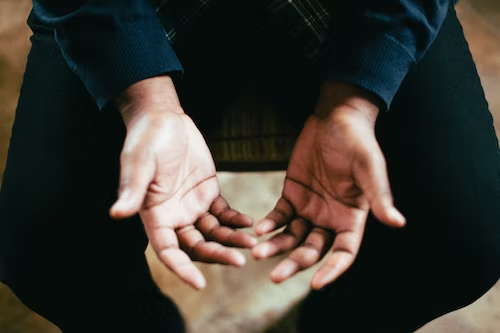
Again I am featuring German therapist Nik Golke’s latest blog post because he understands the power of using story to make his point. In working with hundreds of people suffering personal loss at hospice and in my private practice, the “good-sad” is so often the other side of the grief coin. It comes when we realize the thought of the loss no longer wounds. Have a good week. Sending love, Vicki
The Good Kind of Sad
Nik Golke, Oct 13, 2002
The first time we stand at the grave of someone we loved, we might cry our eyes out. The hundredth time we visit them will look very different.
We may stand in silence, quietly smiling at the thought of what their presence felt like. We may dig through our fondest memories, shaking our head in disbelief that they actually pulled off this one thing. We may even have a lively chat about what happened at work that week. “You should have seen me, Mel. You’d have laughed yourself silly!”
This is the good kind of sad. It’s not the sadness we’re most familiar with, but it’s important to remember it exists. Sadness is not a universally negative emotion. Over time, it can transform. What feels sad-sad now might one day feel good-sad.
There’s a How I Met Your Mother episode in which Marshall holds a BBQ next to his father’s tombstone in order to continue their New Year’s Day tailgating tradition. At first, Marshall is all alone, enjoying some quiet conversation with the ghost of his dad, but then, more and more people show up. “Can I get a hamburger?” “Do you have any more beers?” “Would you mind passing the chips?” Before he knows it, Marshall is hosting a full-on “grillfest,” as we call it in Germany. For a second, he gets annoyed at all the visitors intruding on his space, but then he remembers: Tailgating with his dad was always a party. “The more the merrier,” he’d say — and so does Marshall, handing over the pickles. The good kind of sad.
In The Comfort Book, Matt Haig describes it as “a gentle sadness that almost feels good.” It could be nostalgia or a dream that almost came true. Good-sad is life’s way of reminding us that it is “capable of such warm things,” and that, astonishingly, “we were there to witness them.”





